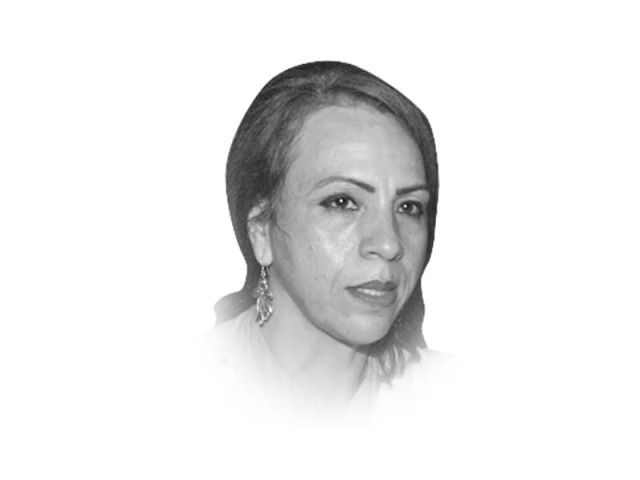The pernicious role of Pakistan’s conservatives
Religio-political parties using religion in politics is like employing a highly conservative interpretation of faith

The use of religion by religio-political parties in politics is such that it ends up employing a highly conservative and patriarchal interpretation of faith. The political project of General Ziaul Haq’s era still haunts the country. Gender discriminatory legislation, such as the Hudood Ordinance, was introduced during this era. Such laws are massively abused and misused against women. Women have been harassed in public places, especially by the police, dress codes for women working in public offices were enforced, and restrictions on women participating in sports were imposed. Violence against women and sexual crimes intensified during General Zia’s era. It took 27 years for the women of Pakistan, with the help of progressive religious scholars, to convince the rulers about the discriminatory nature of the Hudood Ordinance, which equated rape with adultery. Thus, it demanded the same evidence of four male Muslim witnesses to award the maximum punishment in both cases. This lacuna was finally removed through the promulgation of the Women’s Protection Act in 2006.
Women also suffered a great deal under the rule of the Muttahida Majlis-e-Amal (MMA) in Khyber-Pakhtunkhwa. The Hasba Bill was passed by the MMA government that gave ultimate authority to a male Mohtasib to ‘protect’ morality. In practice, it was used only to regulate women’s behaviour. The vigilantism of the Shabab-e-Milli, the youth wing of the Jamaat-e-Islami, led to the harassment of female students in universities and of working women in public places. Women were banned from working in call centres. They were not allowed to visit male doctors for treatment. Singers and artists were attacked. Billboards featuring women were defaced and smashed. An anti-women atmosphere was created to promote the MMA’s politics.
In Malakand division, a ‘peace’ deal was struck with the Tehreek-e-Nifaz-e-Shariat-e-Mohammadi in 2009. Women became the main target as a result of the passing of this deal. They were publicly flogged, attacked for attending schools or going to marketplaces. A dress code was strictly imposed and they were pushed out of the public space and confined within the four walls of their homes.
This anti-women bias appears to be a common feature, not only in Pakistan, but also all around the Muslim world. Wherever politico-religious forces have taken control of state power, women have been pushed out of the public arena. The similarity in the oppressive treatment of women in Afghanistan, Iran, Algeria, Saudi Arabia and the territories controlled by the Taliban and the Islamic State in Pakistan, Iraq and Syria shows that the faith enforced in these places by the powerful is invariably radical, dogmatic, extremist and patriarchal in nature. It is obsessed with controlling women’s morality because they are seen as traditional repositories of culture and identity markers of the Muslim community. Muslim women, who subscribe to the principle of universal human rights, find it hard to engage with such an ideology that not only distorts the spirit of our religion but also imposes a single interpretation of religious doctrine. It does not allow plurality of interpretations. This leads to sectarian tensions in society as each sect strives to impose its own interpretation through state control and power.
The key focus of the fundamentalists is on culture, morality, virtues and protecting it from the corrupt influence of Western culture. It hardly talks about removing disparities and inequalities along the lines of class, gender, race, ethnicity or religion, which have been perpetuated through an economic system based on exploitation and oppression.
It is the responsibility of the state to protect the sanctity of religion and stop its misuse in politics. However, the Pakistani state has been unable to perform this role, with the interpretation of faith being left in the hands of those who are highly divided on sectarian basis and their knowledge and understanding of religion varies.
The Council of Islamic Ideology (CII) was established as a constitutional body to advise the legislature whether or not a certain law is repugnant to religion. The male-dominated CII consists of conservative scholars and has always kept itself busy in creating controversies around women issues. The retrogressive mindset of the institution is reflected in its endorsement of underage marriage, declaring the Women Protection Act and the Family Law Ordinance 1961 irreligious, and declaring that DNA tests should not be admissible as evidence in rape cases. These statements coming out of the CII have been creating a huge sense of insecurity amongst women.
The monopoly and authority that the right-wingers and conservatives have in interpreting faith needs to be broken. This will not only protect the rights of women, children and minorities, it will also rescue our faith from ultra-orthodoxy and save its glory.
Published in The Express Tribune, October 31st, 2014.
Like Opinion & Editorial on Facebook, follow @ETOpEd on Twitter to receive all updates on all our daily pieces.
















COMMENTS
Comments are moderated and generally will be posted if they are on-topic and not abusive.
For more information, please see our Comments FAQ